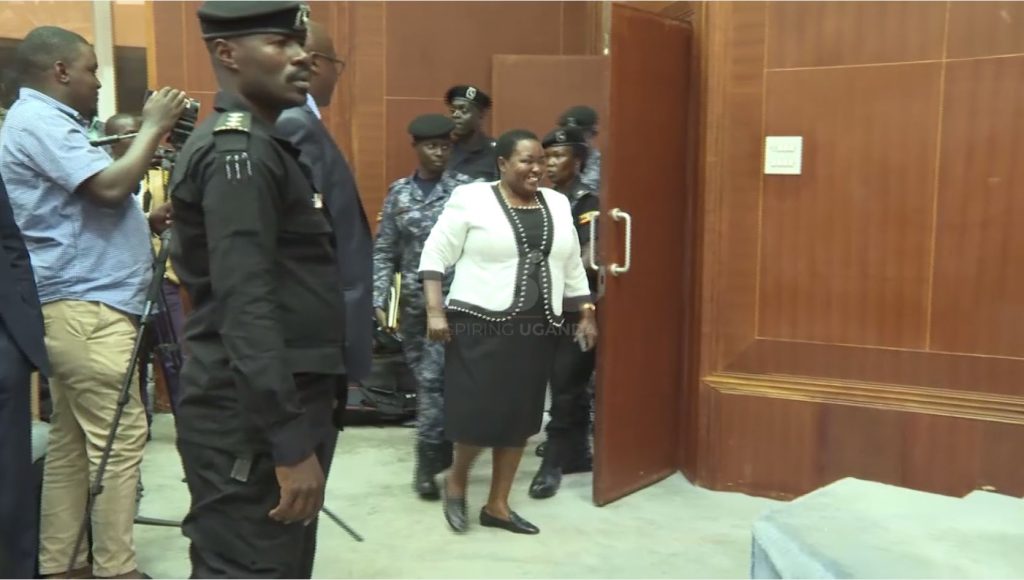A high-level meeting between Prime Minister Robinah Nabbanja and Kampala traders ended abruptly after fury erupted over the continued detention of more than 15 traders arrested during the ongoing strike.
The talks, convened to ease tensions between government and the business community, quickly unraveled when a police report confirmed that those arrested on the first day of the protests remained in custody.
Traders demanded their immediate release before any negotiations could proceed, prompting Nabbanja to adjourn the session indefinitely.
At the heart of the unrest is a deep frustration with Uganda’s revised tax regime on textiles and garments, which traders argue is squeezing small businesses already on the edge.
The new system—introduced on July 1—pegs fabric imports at $2 per kilogram or 35% of value, down from $3/kg, and garment imports at $2.5/kg or 35%, down from $3.5/kg. While officials tout the change as a relief, traders insist the weight-based formula unfairly penalizes them and threatens their survival.
“This policy has left us with no choice but to close shop,” said Hajji Issa Sekitto, Acting Chairperson of the Kampala City Traders Association (KACITA). “We’re going through tough times, yet many refuse to acknowledge it. I hold the trade leaders accountable. Instead of uniting traders, they’re working to divide and break them apart.”
The strike, now in its second week, has left Kampala’s Central Business District eerily quiet, with thousands of shops shuttered in protest.
Beyond taxation, the traders are also demanding stricter enforcement of the Trade Licensing Act, accusing Chinese and Indian nationals of entering Uganda as manufacturers only to later dominate the retail space illegally.
Inside the meeting, emotions ran high as chants filled the hall, drowning out attempts at dialogue. Traders vowed not to resume business until their grievances are addressed and their colleagues freed.
The government, meanwhile, has bolstered security in downtown Kampala, where heavy deployments were seen on Monday morning to forestall potential clashes.
Yet with negotiations stalled and no resolution in sight, the standoff risks further paralyzing commerce in the capital.
Sekitto warned that without swift action, the crisis could spiral. “We’ve raised the matter with Parliament, Cabinet, and even the President, but there’s been no meaningful action,” he said.
For now, the traders’ strike continues to gain momentum, leaving the fate of Kampala’s business hub hanging in the balance.
